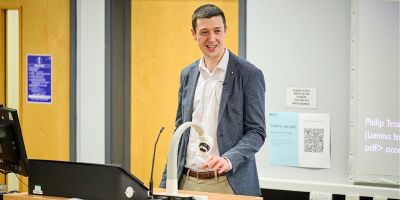Translation and Decolonisation: Interdisciplinary Approaches

A new collection will shine a spotlight on the potential for translation to be a driving force in decolonial resistance.
Ipek Demir, Professor of Diaspora Studies in the School of Sociology and Social Policy, and Claire Chambers, Professor of Global Literature at the University of York, have co-edited a new book, which is published by Routledge. The book is part of the Routledge series ‘Translation, Politics and Society’.
The description for the new collection reads:
“Translation and Decolonisation: Interdisciplinary Approaches offers compelling explorations of the pivotal role that translation plays in the complex and necessarily incomplete process of decolonisation. In a world where translation has historically been a tool of empire and colonisation, this collection shines the spotlight on the potential for translation to be a driving force in decolonial resistance.
“The book bridges the divide between translation studies and the decolonial turn in the social sciences and humanities, revealing the ways in which translation can challenge colonial imaginaries, institutions, and practice, and how translation opens up South-to-South conversations. It brings together scholars from diverse disciplines and fields, including sociology, literature, languages, migration, politics, anthropology, and more, offering interdisciplinary approaches and perspectives.
“By examining both the theoretical and practical aspects of this intersection, the chapters of this agenda-setting collection explore the impact of translation on decolonisation and highlight the need to decolonise translation studies itself. The book illuminates the transformative power of translation in transcending linguistic, cultural, and political boundaries.”
The collection features contributions from leading scholars from around the world including, for example: Ngũgĩ wa Thiong’o, Gayatri Chakravorty Spivak, Paul F. Bandia, Tejaswini Niranjana, Kathryn Batchelor, and Abdelmajid Hannoum.
Ngũgĩ’s contribution, “Finding Our Way: Dialogue Among Our Languages Is the Way to the Unity of African Peoples”, is the closing chapter of the collection. The world-renowned writer, scholar and decolonial activist completed his postgraduate studies at the University of Leeds in the 1960s while working on his celebrated 1967 novel, A Grain of Wheat. Ngũgĩ accepted a Doctor of Letters honoris causa from the University of Leeds in 2004 - one among a long list of honorary doctorates - and opened the Racial Justice Network’s International Symposium at the University of Leeds in October 2023.
Endorsements and reviews for the collection include:
This book is a major contribution to the growing interest in the power relations inherent in translation practice. The distinguished contributors, working across a wide range of languages and disciplines, share exciting ideas not only about translation and colonisation, but also about the role of translation in decolonisation today.
- Susan Bassnett FRSL, FIL, Professor Emerita of Comparative Literature, University of Warwick and the President, British Comparative Literature Association
Translation – the act of dwelling in between, indeed of testing the limits of in-betweenness – has been the subject of a growing body of scholarship loosely named ‘Translation Studies’. Yet, as the chapters in this book make clear, the problematic of translation traverses a wide spectrum of disciplines from literary studies to sociology. It infuses debates on coloniality and postcolonialism and increasingly figures in projects of decolonisation. This volume is a vibrant contribution to these many attempts at grasping the elusive yet essential workings of translation and translatability. Their attention on decolonisation is especially welcome in a world marked by seemingly irreducible conflicts and genocidal wars.
- Vicente L. Rafael, Professor of History and Southeast Asian Studies, University of Washington, Seattle
Translation and Decolonisation frames an urgent charge to the humanities and social science disciplines engaged in translation studies: to participate in active intervention and reparation of colonial injustice. The chapters map established and emerging concepts including reparative translation and activist interpretation, contesting the hegemony of global English and the Western institutional spaces in which translation studies was founded. This volume breaks new ground by placing decolonial and postcolonial traditions in productive dialogue and establishing the Global South as the current epicenter of contemporary translation theory.
- Isabel C. Gómez, author of Cannibal Translation: Literary Reciprocity in Contemporary Latin America (Northwestern University Press, 2023)
A vital and vibrant collection that places translation at the very heart of decolonisation struggles around the world. Leading scholars and translators offer challenging and illuminating insights into the theory of practice of translation on a divided planet beset by the troubling legacies of colonisation.
- Michael Cronin, Trinity College Dublin




